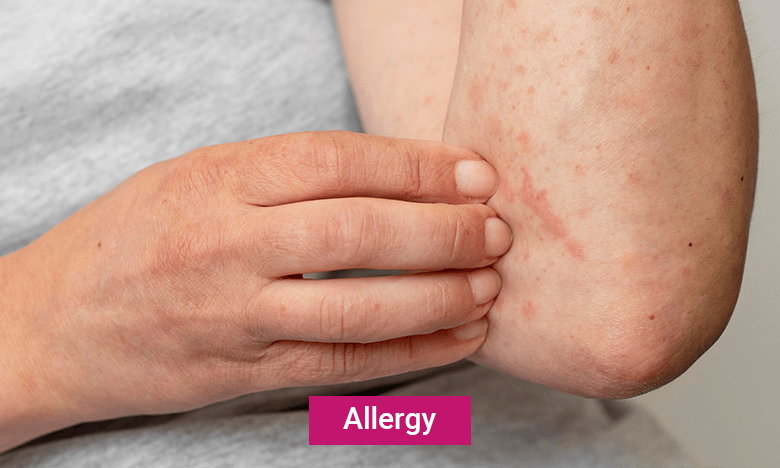Allergy

An allergy is defined as an immediate type I hypersensitivity reaction to the allergen. Allergy can have an impact on various organs, particularly respiratory system, releasing chemicals that cause inflammation, swelling and other symptoms. Allergic diseases are a major health concern worldwide. Allergy is a common health condition that affects a significant portion of the population worldwide.
Allergic rhinitis and asthma are most common pollen-associated allergic respiratory diseases. Pollen sensitization in India varies across different parts because of varied geo-climatic conditions. Estimated prevalence of rhinitis in general population is 10%-30% worldwide and 20%-30% of the Indian population suffers from allergic rhinitis. Pulmonologists play an essential role in managing allergy patients by diagnosing, treating, and preventing respiratory-related allergy symptoms.
Symptoms
Allergy symptoms can manifest in various ways, and it is essential to identify the specific triggers that cause a patient’s allergic reaction. Symptoms are typically paroxysmal and include wheezing, cough, breathlessness, chest tightness, running nose, nose block and sneezing. Pulmonologists use a combination of physical examinations, medical history, and diagnostic tests such as skin prick tests, blood tests, and lung function tests to determine the type of allergy and the severity of the condition. In vivo tests (performed in a whole living organism) and In vitro tests (in an artificial environment) for the diagnosis of respiratory allergic diseases determine the allergy causes for treatment.
A broader knowledge of indoor and outdoor allergens with detailed history taking of allergic patients can help in selecting appropriate allergen for testing either by skin prick test (SPT) or specific immunoglobulin-E (IgE) against a particular allergen, which in turn, will help in allergen avoidance and designing allergen specific immunotherapy. Pulmonologists can also advise patients on preventive measures to avoid exposure to allergens. For instance, patients with pollen allergies may be advised to stay indoors during high pollen count periods, while those with animal allergies may be advised to avoid pet dander. Pollen calendar is important in respiratory allergic diseases for taking personal preventive measures and diagnostic and therapeutic considerations. It also helps public health officials to assess the impact of exposure and to develop early warning systems.
Treatment
Once the allergy is diagnosed, pulmonologists can plan medical treatment based on the patient’s symptoms and triggers. The treatment plan may include medication and immunotherapy. Medication such as antihistamines, decongestants, and steroids can help reduce inflammation, block histamines, and relieve symptoms such as sneezing, coughing, and wheezing. Pulmonologists may also recommend immunotherapy, which involves gradually introducing small amounts of the allergen into the patient’s body to help the immune system build resistance and reduce the severity of allergic reactions.
The role of pulmonologists in managing allergy patients is crucial in ensuring patients receive the correct diagnosis, effective treatment, and preventative measures to manage their symptoms. They also advise patients on preventative measures and collaborate with other healthcare professionals such as allergists, immunologists and respiratory therapists to manage more complex cases.
We, at Ramaiah Memorial Hospital, have a strong team of specialists who will help you manage your allergies and keep you healthy and comfortable.
Dr. Tanisha F. Saleem
Consultant
Department of Pulmonology

